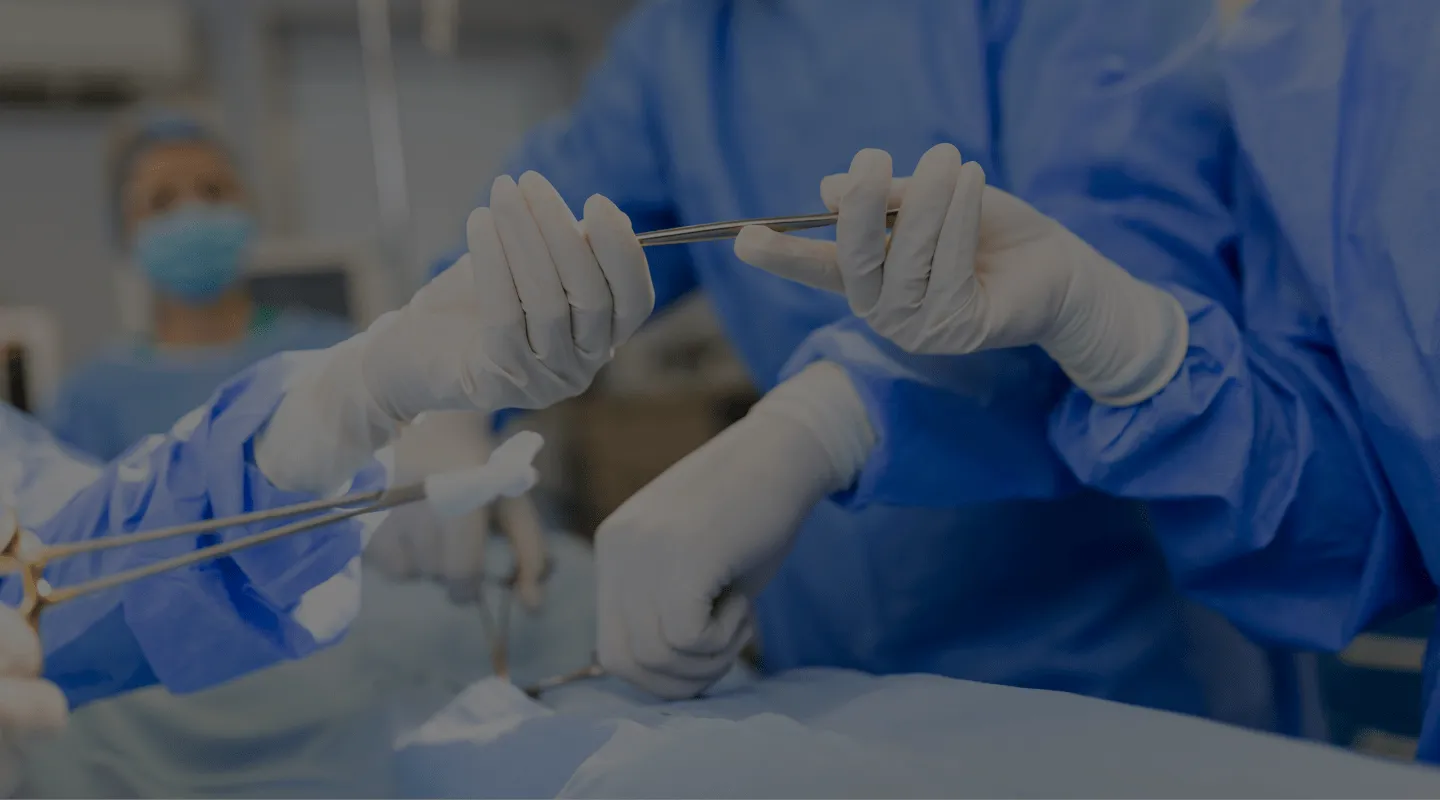
Micro TESE
Your Micro TESE in Tunisia at an affordable price
Benefit from the latest advancements with a Micro-TESE in a highly qualified medical setting.
How does it work?
What is Micro TESE?
Micro TESE is a surgical procedure aimed at extracting sperm directly from the patient’s testicles. This sperm can then be used for in vitro fertilization with intracytoplasmic microinjection (IVF-ICSI). Discover everything you need to know about this procedure in Tunisia: what are the indications, how the procedure is performed, and what its principle is?
When a man suffers from non-obstructive azoospermia, no sperm will be present in his ejaculate. This condition is one of the main causes of infertility in men and can make it difficult for the couple to conceive a child. Unfortunately, this makes fertilization impossible. Due to technological and scientific advances in the field of fertility, it is now possible to remedy azoospermia. Micro TESE makes it possible to collect sperm directly from the patient, which will then be used for IVF (in vitro fertilization).
Depending on the amount of sperm collected, two procedures are possible:
- If the number of sperm collected is low, we will perform micro-injection-ICSI and IVF simultaneously in a single session.
- If a large quantity of sperm is collected, it can be frozen for later use during IVF.
The prices of a Micro TESE have been perfectly studied to satisfy our clientele from all over the world. With the formulas we offer, your Micro TEST will be much cheaper than if you have it performed in a clinic in Europe. Explore our packages which cover the cost of your procedure, your stay in a private room, and may even include all expenses during your time in our country. Contact us for a detailed quote and further information on all of our services. Prices for a Micro TESE start at €1400. This includes all medical fees for the outpatient procedure.
Micro TESE in Tunisia: what you need to know before the operation
During the first consultation, the patient will have to undergo a series of tests and analyses, such as a semen analysis and hormone analysis, in order to understand the causes of azoospermia. There are several possible factors, such as insufficient testicle size, genetic, hormonal or neurological problems.
It is important to note that two types of azoospermia can be identified by performing a diagnosis:
- When an obstruction hinders the passage of sperm, it is called obstructive or excretory azoospermia. This anomaly is then located in the vas deferens, responsible for transporting sperm to the ureter.
- Non-obstructive azoospermia, also called secretory azoospermia, refers to a malfunction during sperm production in the testicles.
It is important to keep in mind that your potential to resolve your fertility problem will depend on the type of azoospermia you have. If you have obstructive azoospermia, your chances of procreation are very high. On the other hand, if you suffer from secretory azoospermia which directly affects sperm production in your testicles, your chances of becoming a father are statistically one in two, provided you do not have other fertility problems. Before undergoing a testicular biopsy, the surgeon will provide you with detailed instructions for proper preparation. You will need to gather a complete medical file, including a thorough health examination and blood tests.
Micro TESE in Tunisia: how is the operation performed?
In order for enough sperm to be collected, it is essential to perform a Micro-TESE, also called a testicular biopsy under a microscope. This method relies on the use of an operating microscope which makes it possible to locate and collect the necessary sperm. General anesthesia is necessary during this medical procedure (however, local anesthesia can be considered in certain cases). The duration of the procedure can be considerable, lasting more than 3 or 4 hours. During this microsurgery procedure, our main objective is to optimize the use of sperm tissue for IVF-ICSI. The surgeon makes a small incision in the scrotum to directly access the testicles and collect the sperm at the exact site of their formation. If we collect a sufficient amount of sperm, it can be frozen and used in other IVF cycles, thus increasing the chances of fertilization. With this technique, we hope to improve the results for our patients in their journey towards parenthood. The surgery will be performed on an outpatient basis, so you will be able to leave the clinic on the same day as the operation.
Our advantages


Post-operative care for Micro TESE in Tunisia
Thanks to modern surgical techniques, Micro TESE is now a reliable, safe, and relatively simple procedure to perform. The resulting scar from the operation, given its small size and location, is difficult to detect after the procedure. After the procedure, you will experience very little pain. However, if you experience any discomfort, the surgeon can prescribe analgesics to remedy this.
Your quote with TDS
With Tunisia Destination Santé, organizing your surgical stay for Micro TESE in Tunisia has never been easier. Simply contact our team in Tunisia by phone or by filling out our online form. We are committed to supporting you throughout the process, taking charge of the preparation of your medical file and booking your flight. Our team is at your disposal to answer all your questions about our services, to offer you a smooth and satisfactory experience. To truly have a chance to resume sporting activity, it is often necessary to wait at least 21 days, or even a month. You will have to wait about ten days before being able to resume normal sexual activity.
Your health, our priority.
Request your free quote.
Frequently Asked Questions
Yes, Micro TESE can be used in men with non-obstructive azoospermia due to genetic abnormalities, although the success rate may vary depending on the specific nature of the genetic abnormalities.
Criteria include confirmed non-obstructive azoospermia, normal to elevated FSH (follicle-stimulating hormone) levels, and prior genetic evaluation to rule out chromosomal abnormalities or microdeletions of the Y chromosome.
Micro TESE uses a surgical microscope to identify testicular tubules that may contain sperm, which improves recovery rates compared to conventional TESE, which samples testicular tissue more randomly.
Potential long-term complications may include chronic testicular pain, testicular atrophy, and scarring, although these complications are rare.
Micro TESE can affect testicular hormone production, but generally temporarily. Recovery of hormone levels usually occurs within months of the procedure.
Yes, Micro TESE can be repeated, although the success rate of sperm recovery may be lower in subsequent attempts.
Success rates may be lower in men who have undergone chemotherapy, as treatment can severely damage testicular germ cells. However, some men may still produce recoverable sperm.
Yes, techniques such as in vitro sperm maturation and the use of hormonal agents to stimulate spermatogenesis can be used in addition to Micro TESE.
Micro TESE is often integrated into a comprehensive program that may include endocrine evaluation, genetic testing, hormonal treatments, and assisted reproductive techniques such as ICSI (Intracytoplasmic Sperm Injection).
The typical recovery time after a Micro TESE is 1 to 2 weeks, during which patients should avoid strenuous physical activity and follow their doctor’s post-operative care recommendations.
